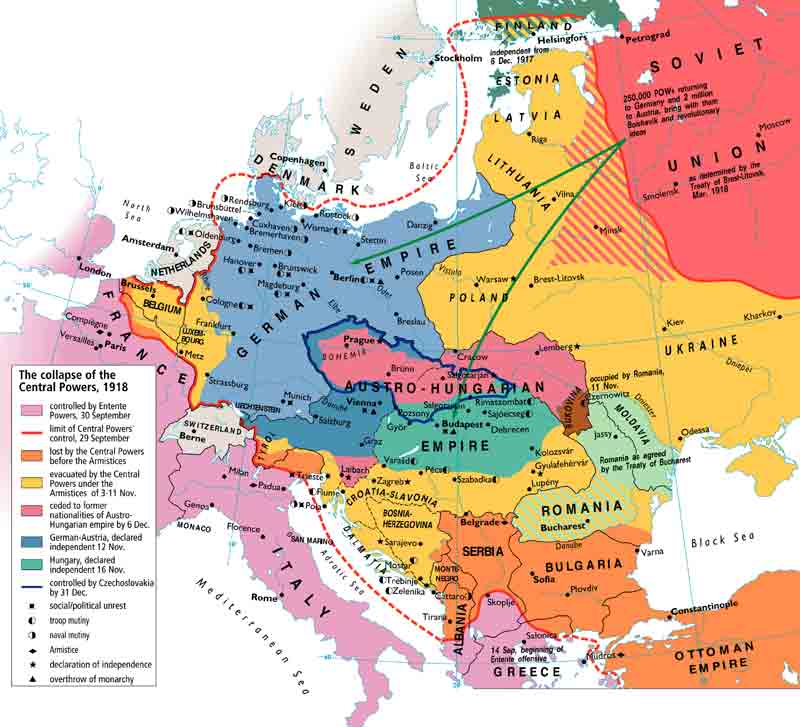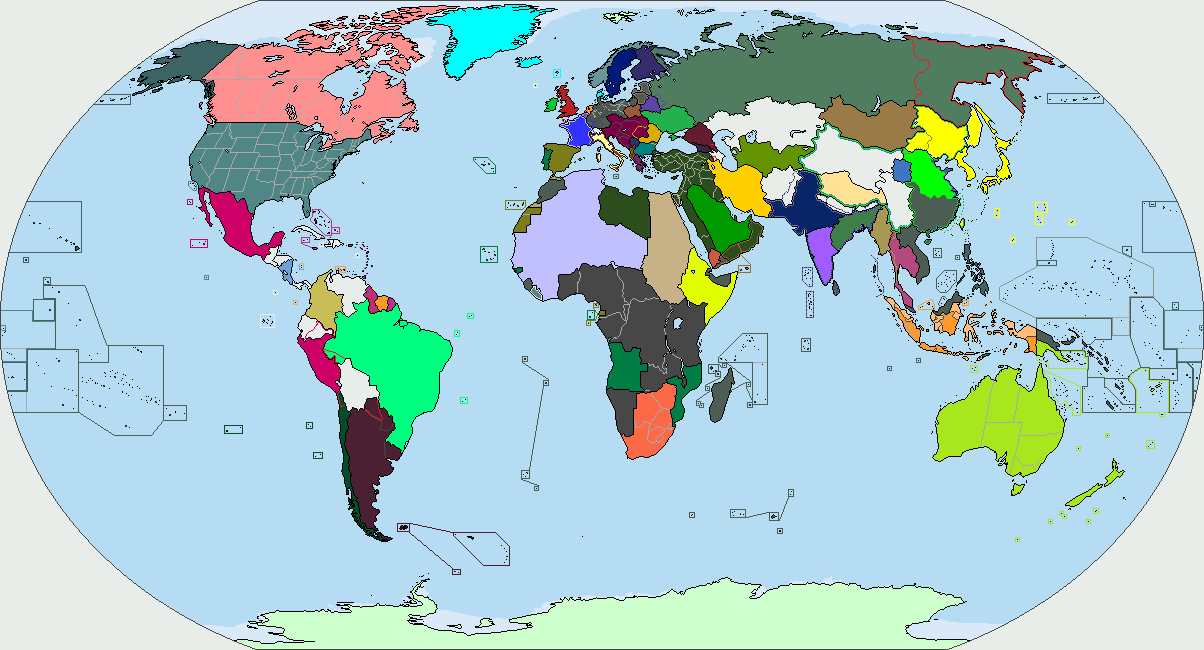
Could an Imperial Germany that emerges victorious in WWI, economically outcompete the US, in both industrial and financial sectors?
What do you think?
Last edited:

I'm assuming that map is not relevant.
So yeah, probably not. Definitely not in the long run.
Mostly I just want to say serious what the hell is that map? Did anyone seriously believe that would be the outcome of a German victory in any conflict ever?
I'm assuming that map is not relevant.
So yeah, probably not. Definitely not in the long run.
Mostly I just want to say serious what the hell is that map? Did anyone seriously believe that would be the outcome of a German victory in any conflict ever?

No. The US was already on pace to overtake the largest European economies even before WWI. As the only way for Germany to establish the power shown in that second map is for said war to occur it is highly likely the OTL factors which went into American economic domination are simply impossible to overcome.
I don't think so. Keep in mind that they will still have extraordinary defense costs with new restive territory and an empire that will probably still not be on par with the British one resource wise but just as expensive to maintain defense wise. This tends to interfere with economic productivity with less room for subsidies.
And such an empire is still deeply in the hole when it comes to petroleum, astronomically so in comparison to the US and significantly so compared to the UK...
Best,
Let's assume this is the Kaiserreich in question, which is probably the best case scenario for Germoney.

Even then, the United States would have outpaced it, as it outpaced all of Europe. Not only does the US have immigration boosting its population, it doesn't depend on colonial lands far from the metropole for its raw materials.
Most developed economies have an oil shortage, of all the great powers in the Industrial Age only the US and Russia/Soviet Union have had lots of oil. This has not stopped the likes of Britain, Germany, France, Italy, Japan and even down the ranks Australia, The Netherlands and New Zealand from becoming prosperous and in their time and sphere quite powerful.
If petroleum becomes a real problem the Kaiser Reich could enact policies to ward off the worst effects like developing a reserve, fostering the Fischer Tropsch process, buying shares in major oil companies and developing a varied array of oil suppliers.
What is this, a Kaiserreich for ants?
Most developed economies have an oil shortage, of all the great powers in the Industrial Age only the US and Russia/Soviet Union have had lots of oil. This has not stopped the likes of Britain, Germany, France, Italy, Japan and even down the ranks Australia, The Netherlands and New Zealand from becoming prosperous and in their time and sphere quite powerful. If petroleum becomes a real problem the Kaiser Reich could enact policies to ward off the worst effects like developing a reserve, fostering the Fischer Tropsch process, buying shares in major oil companies and developing a varied array of oil suppliers.